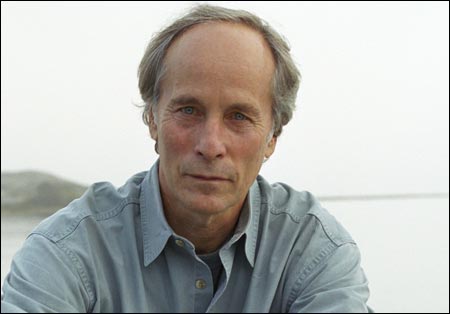Richard Ford created Frank Bascombe in The Sportswriter (1986), returned to him in Independence Day (1995), for which he won a Pulitzer Prize and a PEN/Faulkner Award, and has now come back to him for what he says is the last time in The Lay of the Land (Knopf, 496 pages, $26.95). In the current book, which takes place over the course of three days culminating in Thanksgiving 2000, the former-sportswriter-turned-real-estate-agent, now 55, is contending with prostate cancer, an ex-wife, his separation from his current spouse, and his two grown children. After the equanimity of the “Existence Period” in Independence Day, the garrulous Bascombe is trying to accommodate himself to the “Permanent Period” of life, where “we try to be what we are in the present — good or not so good . . . so that accepting final credit for ourselves won’t be such a shock later on.” But the three books are as much about New Jersey — its underpraised suburban everyman sprawl — and Bascombe’s first-person narrator voice is a way to get into it, a “language of affirmation” for a setting that, as Ford told the New York Times’ Charles McGrath, is “faintly risible.” Ford, a native Mississippian who lives in New Orleans and Maine with his wife, Kristina, is the author of six books of fiction in addition to the Bascombe saga. He talked to me on the phone from Washington, DC, where he was on a book tour that brings him to the Brookline Booksmith reading series at the Coolidge Corner Theatre on November 16.

HAPPY THANKSGIVING! Former-sportswriter-turned-real-estate-agent Frank, now 55, is contending with prostate cancer, an ex-wife, his separation from his current spouse, and his two grown children.
|
When did you first conceive this third Frank Bascombe book?
I started thinking about it in 2002. When I finished Independence Day, people kept asking me if I was going to write a third book and so I guess in a sort of a generic way I conceded silently to myself that I could try. But not until I got over my book of short stories, A Multitude of Sins [2002], did I really sit down and start addressing myself to it and going through my notebooks and combing through all that and beginning to marshal together a lot of material for it.
Were you inspired by going back to the physical place?
Partly it was a process of wanting to write about the Jersey shore. I had a nice little taste of writing about the Jersey shore in Independence Day, and that was one of the strongest impulses that I had. I really wanted to try my best to create the illusion of life over there and to try to dedicate some language to the place and to the sensations about that place and in a way summon it
Did you always conceive of it as taking place over these three days?
Yes, I always thought it would be a Thanksgiving book. I wasn’t sure exactly what year it would be, but since I started thinking about it after 9/11, it became immediately clear to me that I would not be able to set the book after 9/11 because I just didn’t have the wherewithal to undertake a book that had 9/11 in it. And it didn’t seem possible that you could write a book — at least in those days — that took place afterwards that didn’t have it somehow in it. And I just didn’t feel that the facts of 9/11 had sufficiently worn down so that an act of imagination like a novel would have much to contribute.
ADVERTISEMENT
 |
Can you talk about Frank’s voice as first-person narrator in The Lay of the Land?
The voice felt like it was the same voice in its sonorities, but insofar as it developed into a literary style, those sonorities were definitely altered by the fact that I had a lot more stuff that I wanted to put into sentences. The sentences turned out to be much longer, so that the voice had to be a little elastic to permit me to put into them all I wanted to put. I thought that to write a third book was going to require me to really dig a lot deeper into things than I had ever done before and push sentences further out than I had ever pushed them. So I knew they would be longer sentences, and I did a good deal of reining in at the end, making sentences shorter, dividing them up, making the novel as economical as I could. But the voice did seem basically the same, although I thought I was causing it to play upon different kinds of human concerns.